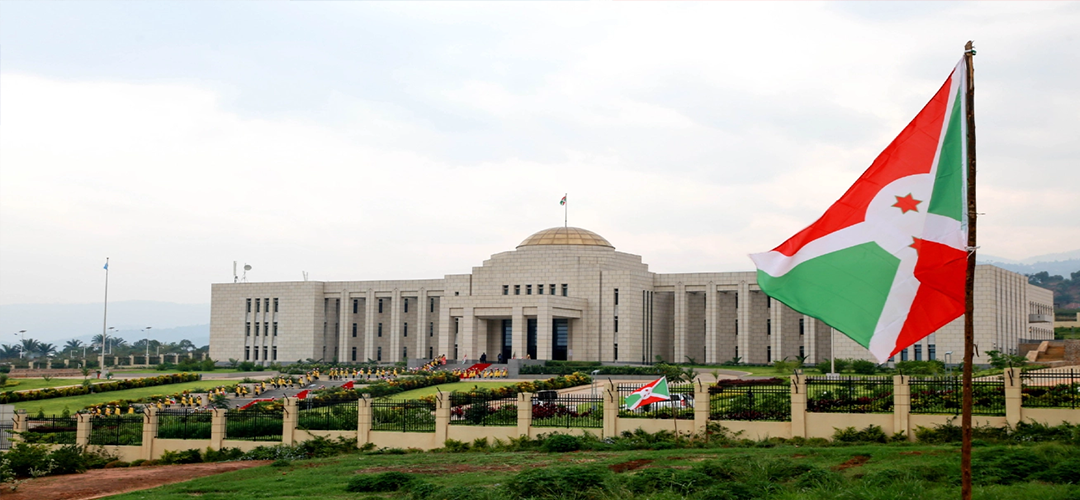PALACE DIPLOMACY
October 29, 2022 | Expert Insights

China has long recognised the value of Africa as a market and a source of precious natural resources. This has been reflected in its well-planned interventions in the continent through its diverse corporations and the Belt and Road Initiative (BRI), targeting vital economic sectors, including infrastructure, telecoms, and agriculture.
Despite the apparent beneficial economic effects within Africa, there has been considerable uncertainty and inconsistency in the discussion around the Chinese connection. Western nations have fanned these sentiments for apparent reasons.
While China has veered clear of preaching good governance and virtues of its own model of politics to its African allies, it has not refrained from wooing the ruling elite to further its economic objectives.
Background
A key component of palace diplomacy is the personal gratification of the rulers. This has varied from nation to nation and includes building dazzling work/living places with little utilitarian value. A recently released report states that Chinese companies have built or renovated at least 186 African government buildings since 1966, including 24 offices or residences of heads of state. All but three of the 70 residential structures were sponsored by the Chinese government or a Chinese corporation, and at least 45 of those buildings received construction cost subsidies from Beijing. This report was, naturally, hotly contested by official Chinese spokespersons.
African countries need infrastructure desperately but lack funding to make them a reality. This is where China has stepped in with its BRI, recklessly constructing roads, ports, airports, bridges, power plants, dams etc. Leaders obviously tout these massive projects as their achievements to strengthen their domestic political standing. Apart from the diplomatic favour earned, there is a commercial angle. Beijing uses its vast foreign reserves to build infra through Chinese companies using Chinese experts, materials and even, at times, Chinese labour. Only the most insignificant part of the projects are outsourced locally, and local employment is restricted to unskilled classes. The unrest in Pakistan's Baluchistan province, a hub of CPEC, is a case in point.
As the infrastructure grows, Chinese ex-pats stream in, running small and medium businesses and acting as vendors to the larger Chinese companies engaged in BRI projects. However, these are far from free handouts; the recipient countries pay a stiff interest rate with a government-guaranteed high-interest rate, as was revealed in Sri Lanka. The political hierarchy is too enamoured by their Chinese benefactors to lay down demanding pre-conditions as they stand to gain personally and politically from the Chinese largesse.
Many believe that Chinese projects should generally help Africans, and most of the time, they do. However, in recent times, common folks have started questioning Chinese intentions. Over the years, there have been demonstrations against the working conditions on these projects in nations like Zambia and Malawi, as well as other parts of the continent, citing abuse of labour laws and Chinese traders using unfair pricing to put local traders out of the market.
Analysis
China is unapologetic about its diplomatic objective of winning friends in Africa, an upcoming market with a huge presence in international bodies. It has done this rather adroitly as it has avoided being judgmental about the type of governance practised by its local hosts. This is in sharp contrast to the outlook of western democracies, who have historically considered Africa a ‘white man’s burden’. This patronising sentiment continues to a degree to date and is conspicuous by its absence in the Chinese outlook.
It also becomes imperative not to understate the power of China's investment-based diplomacy in Africa to reconfigure alliances. African nations' stances on issues like the Taiwan problem and the South China Sea conflict have transformed in recent years, just as there is no murmur from Islamic countries upon Chinese excesses upon their Muslim Uyghurs. More importantly, research shows that this kind of influence is zero-sum: as China's power grows, the U.S.'s impact declines.
As one of the most alluring presents, Beijing assists African officials in keeping power. Chinese state-owned businesses have controlled the construction of physical infrastructure in Africa over the past 20 years, and these projects are visible indicators of a leader's success with the electorate. According to Bhaso Ndzendze, Associate Professor of politics and international relations at the University of Johannesburg, the true implications of these gifts still need to be understood because details about Chinese investment deals on the continent are usually vague and obscure. Even the IMF cannot uncover the details when it processes loans for debtor nations in Africa and Asia.
Through the years, it has become more than evident that through such palace diplomacy tactics, China has been recovering the cost of its investments in full, if not more, as its interests in Africa continue to balloon. In the first quarter of 2022, China's Customs Data confirmed that trade between the two regions increased by 23 per cent to USD 64. 8 million. Africa exported goods worth USD 105.9 billion to China, an increase of 43.7 per cent from the previous year.
Assessment
- African leaders will likely support Beijing over Washington on critical strategic issues at international fora like the United Nations. This should be a wake-up call for the U.S and its European allies who once ruled Africa. They will have to develop more innovative diplomatic and commercial stratagem to compete with the Dragon.
- Corruption remains one of the most significant obstructions to progress, only worsened by Chinese influence within the continent. The need of the hour is a reform of socio-economic and political activities in Africa to encourage clean and transparent governance. But who will bell the cat?








Comments